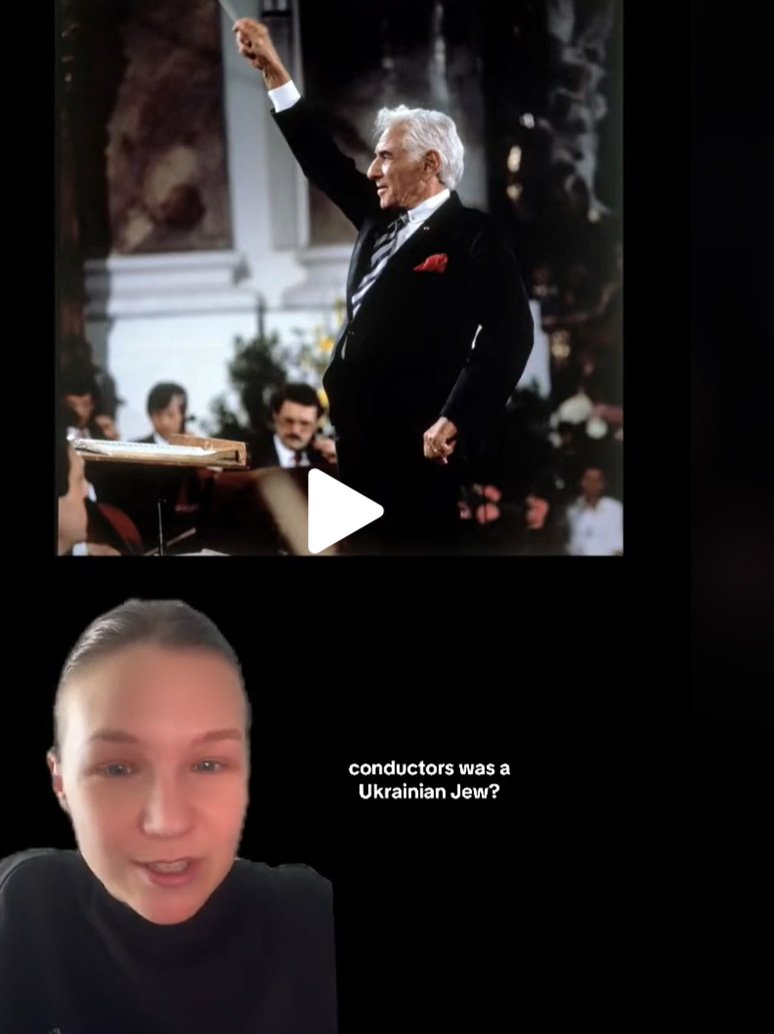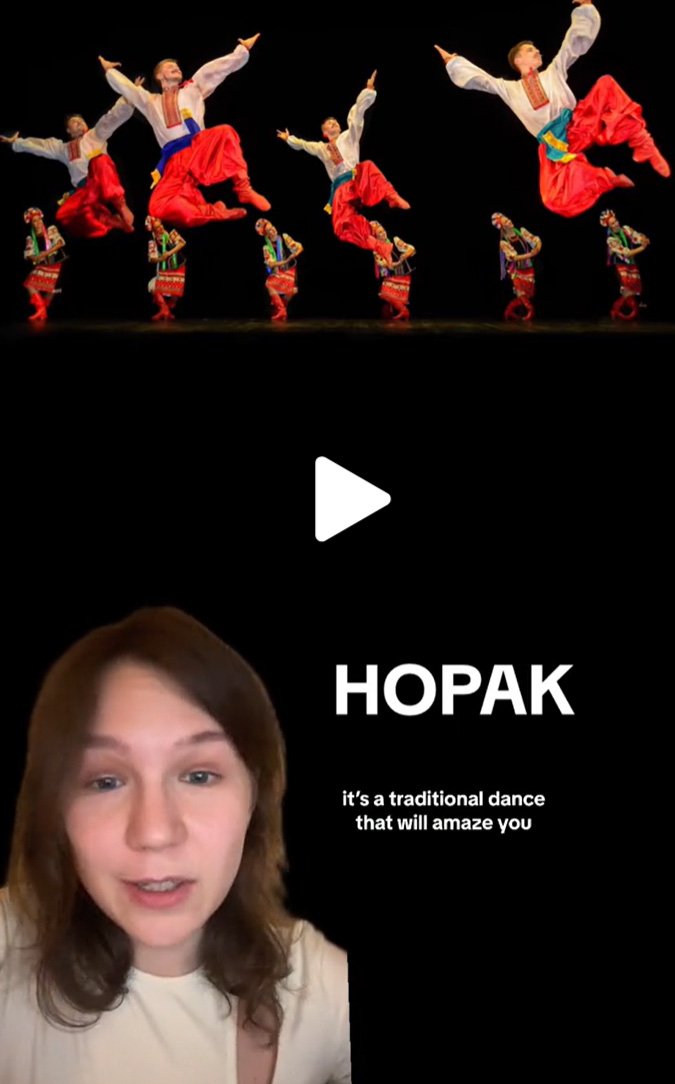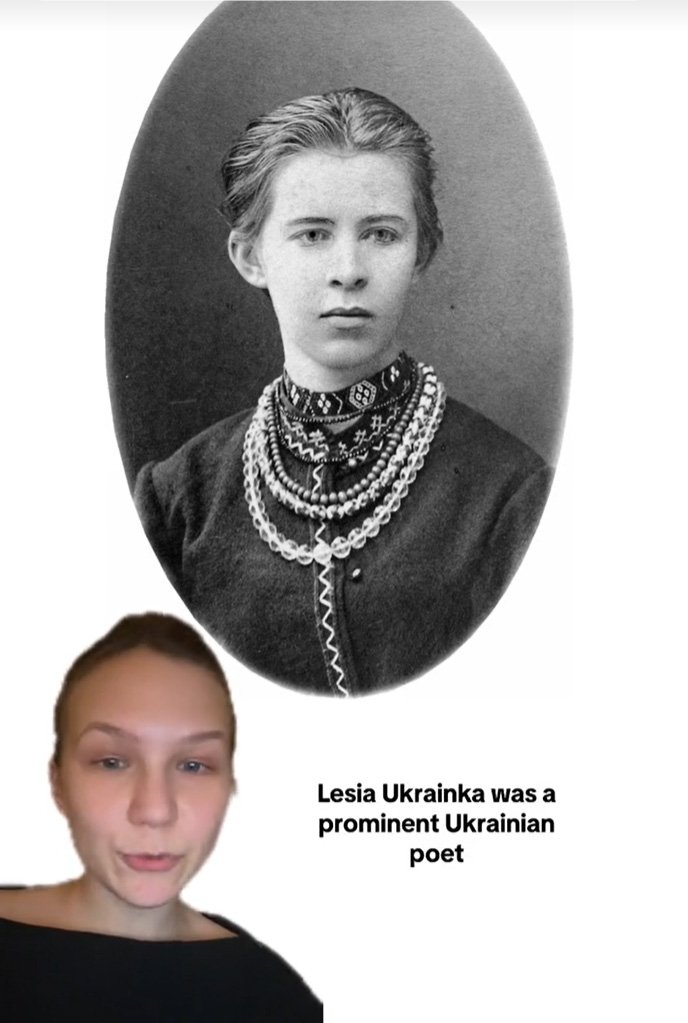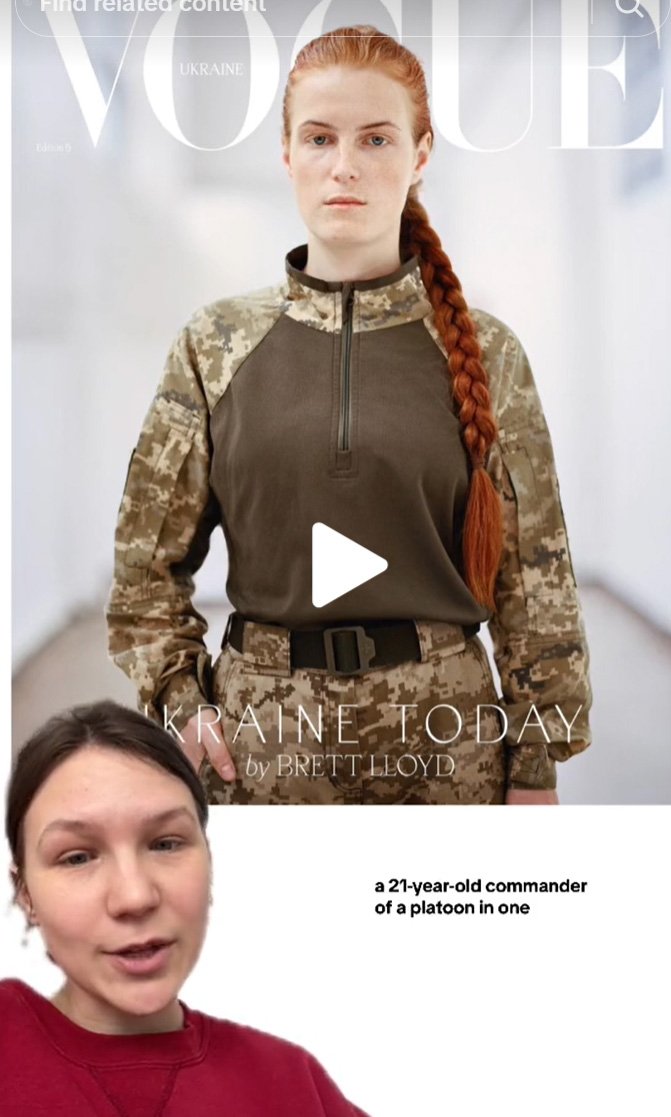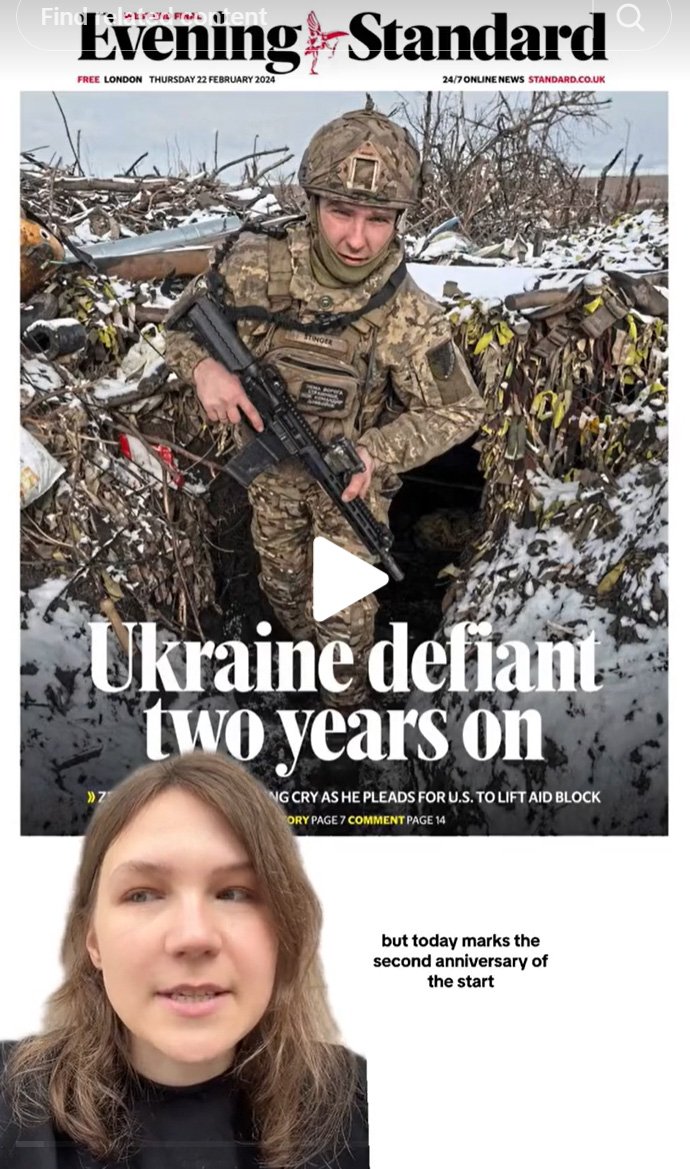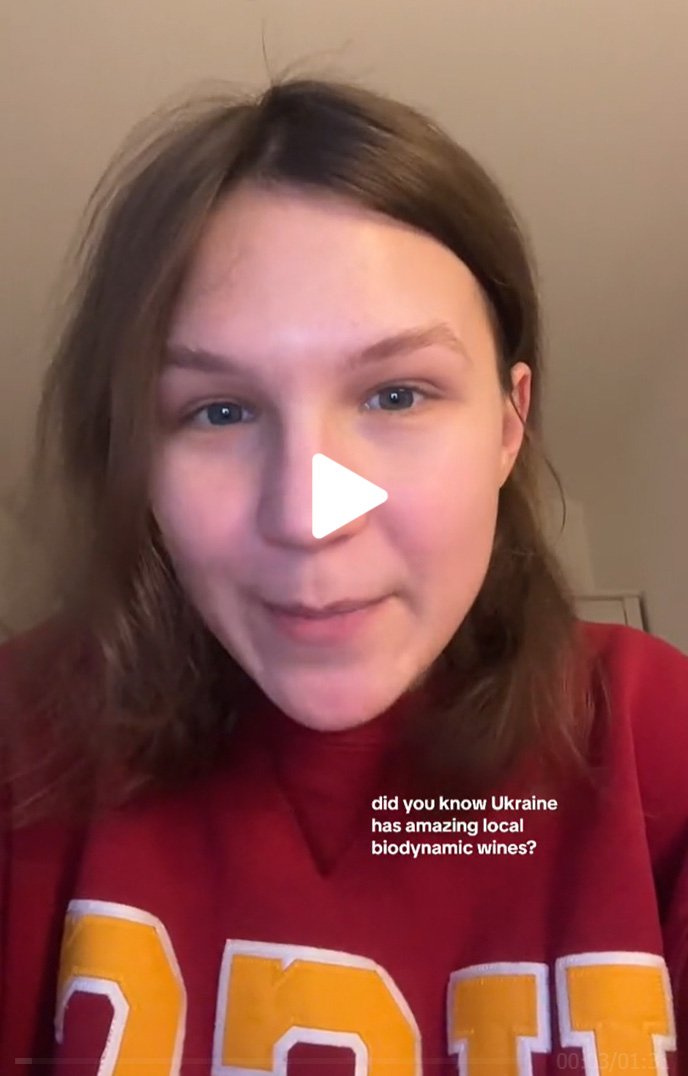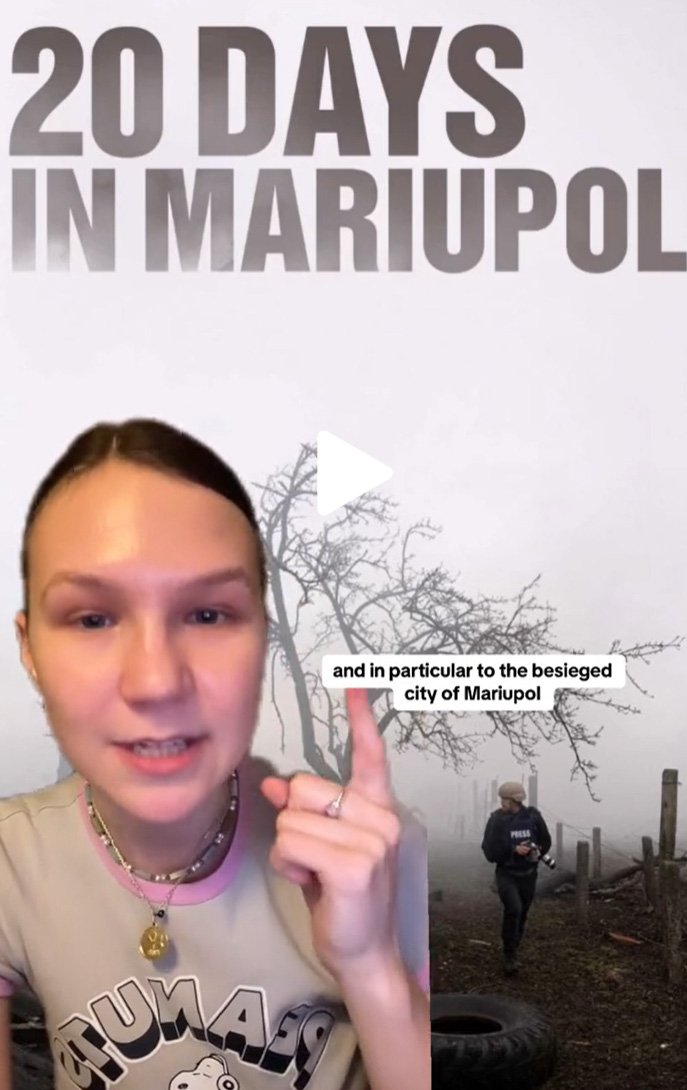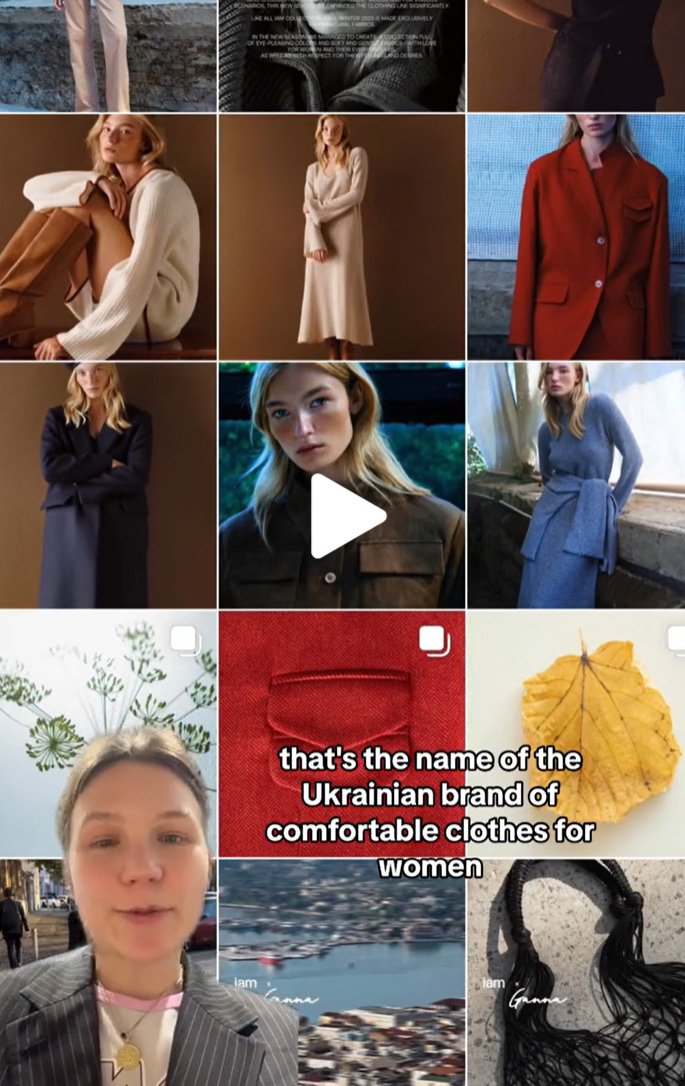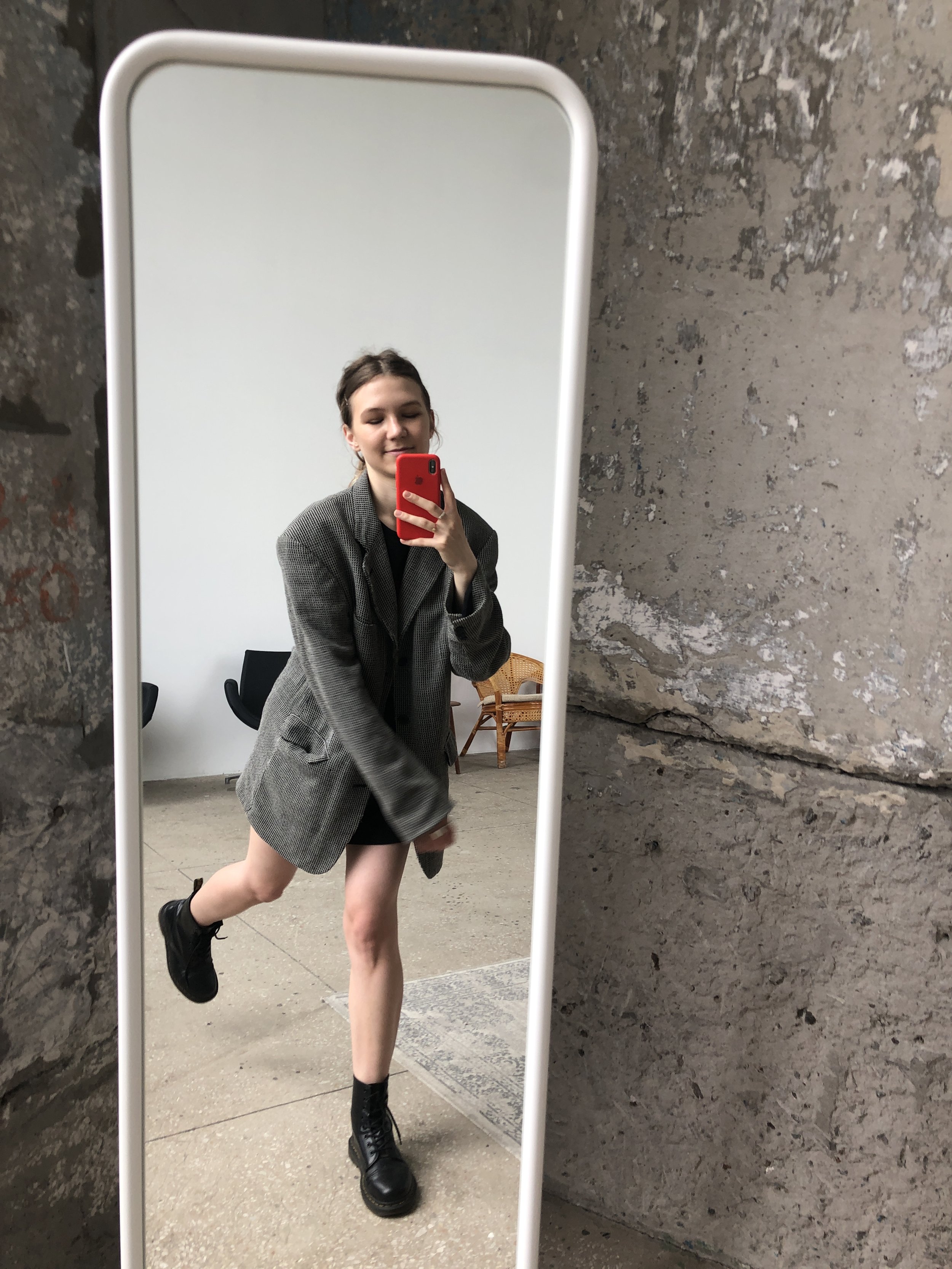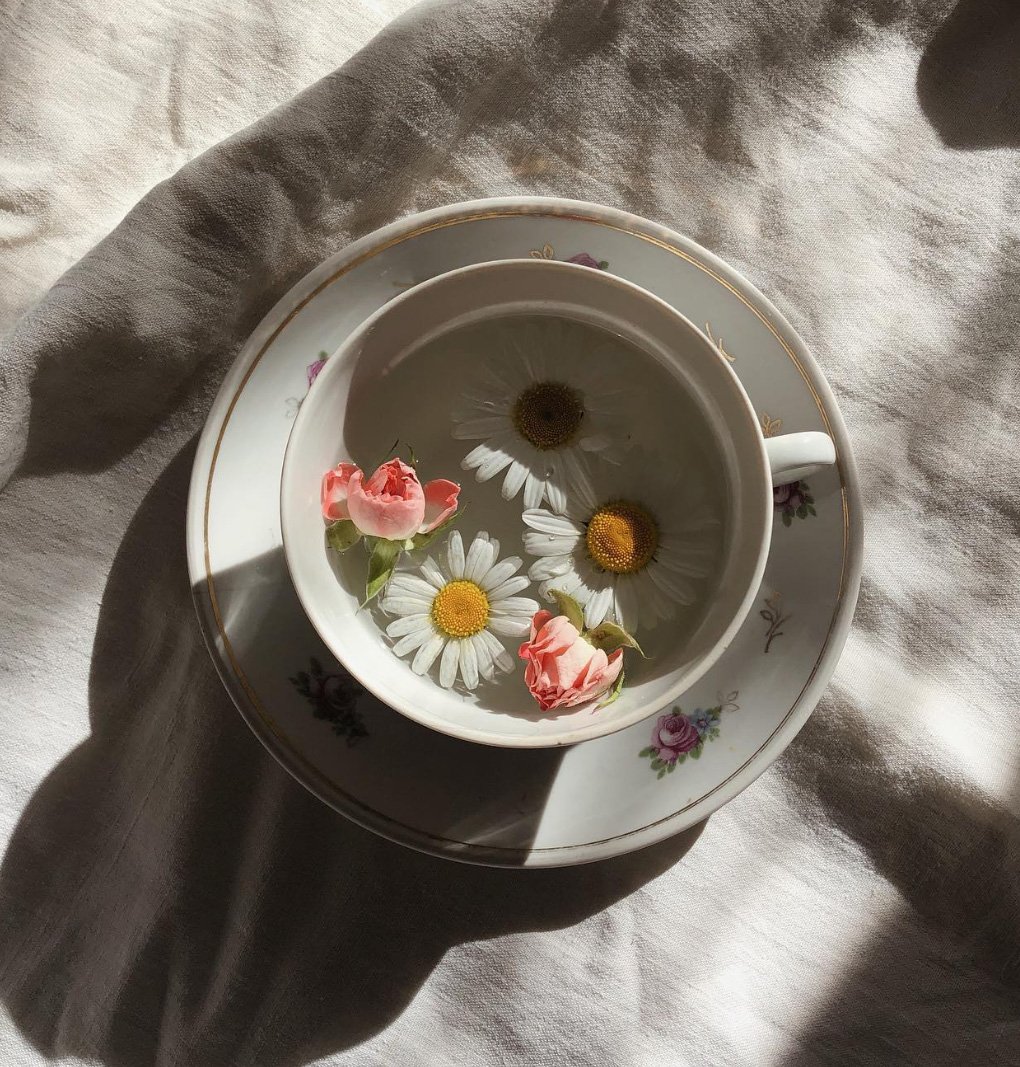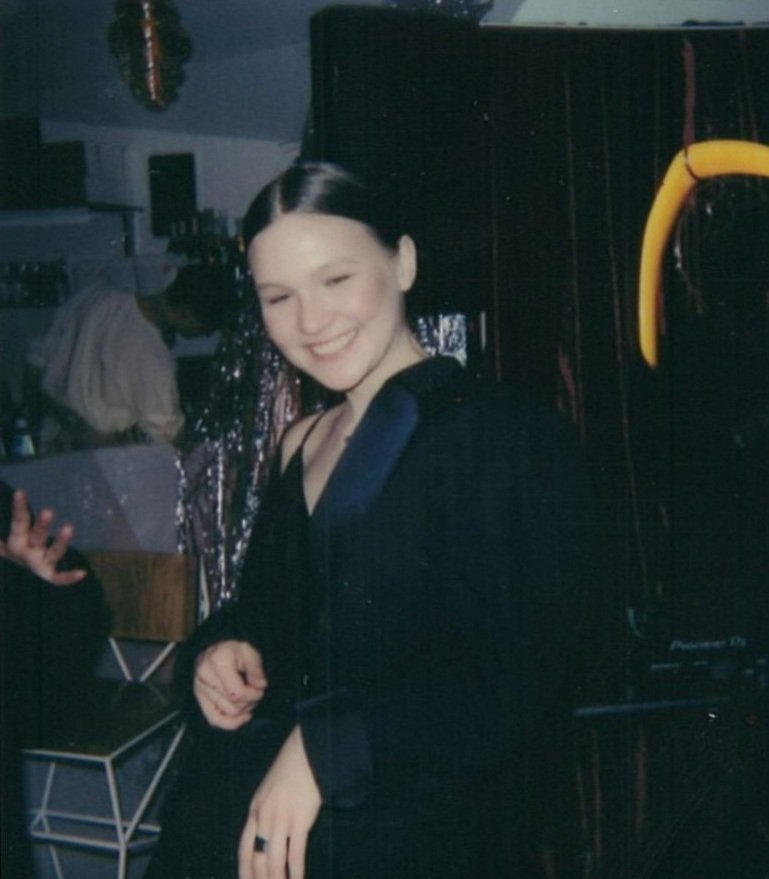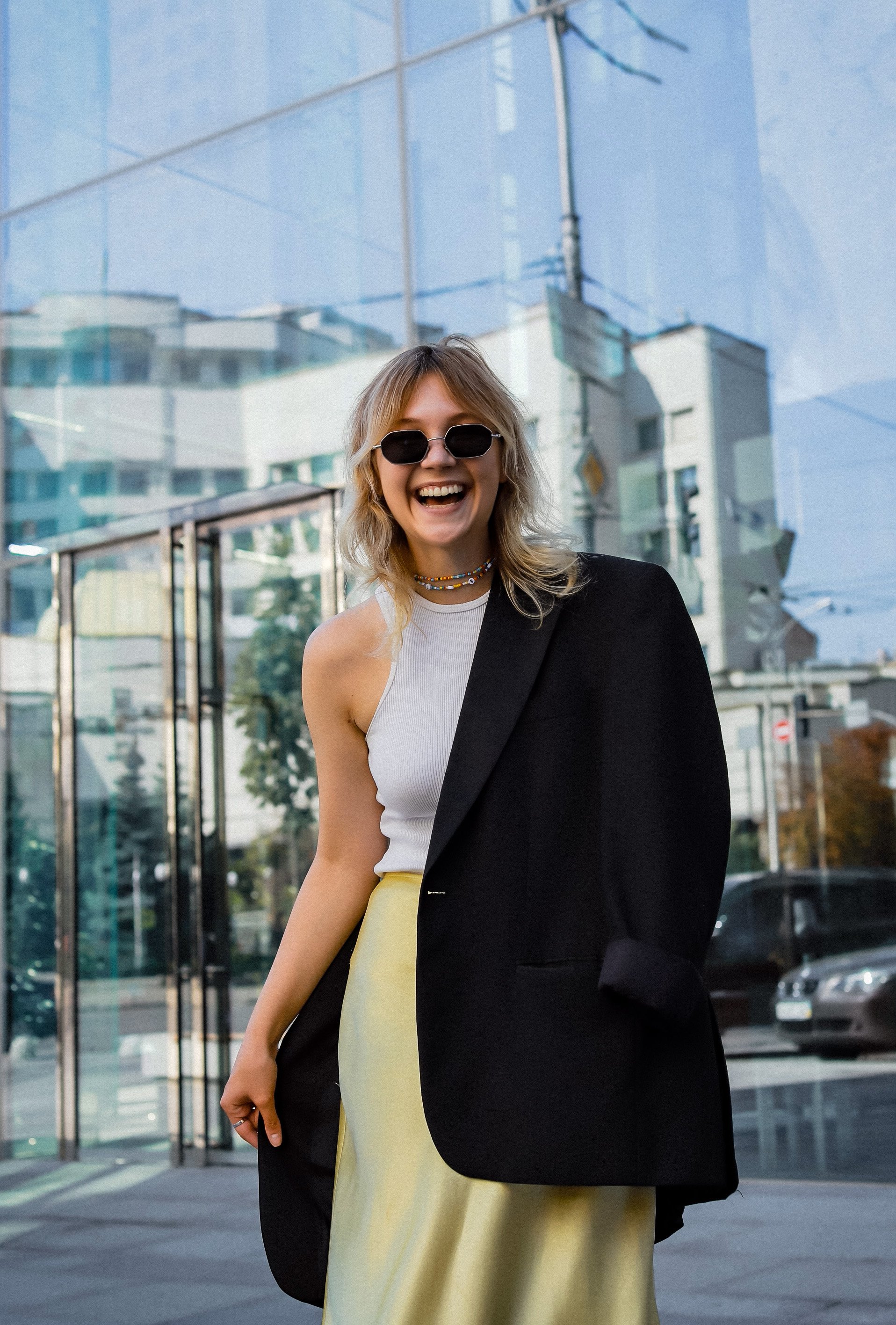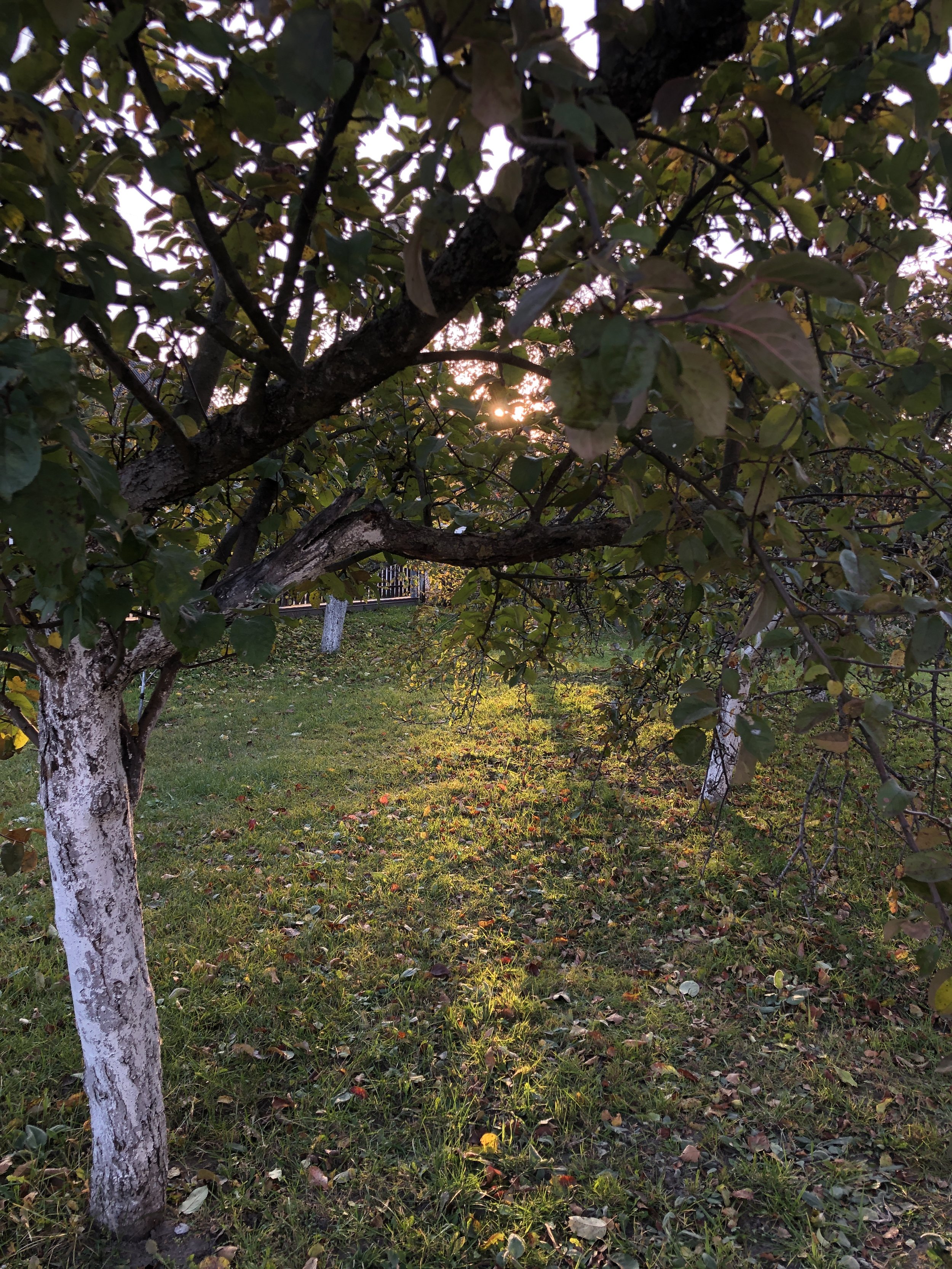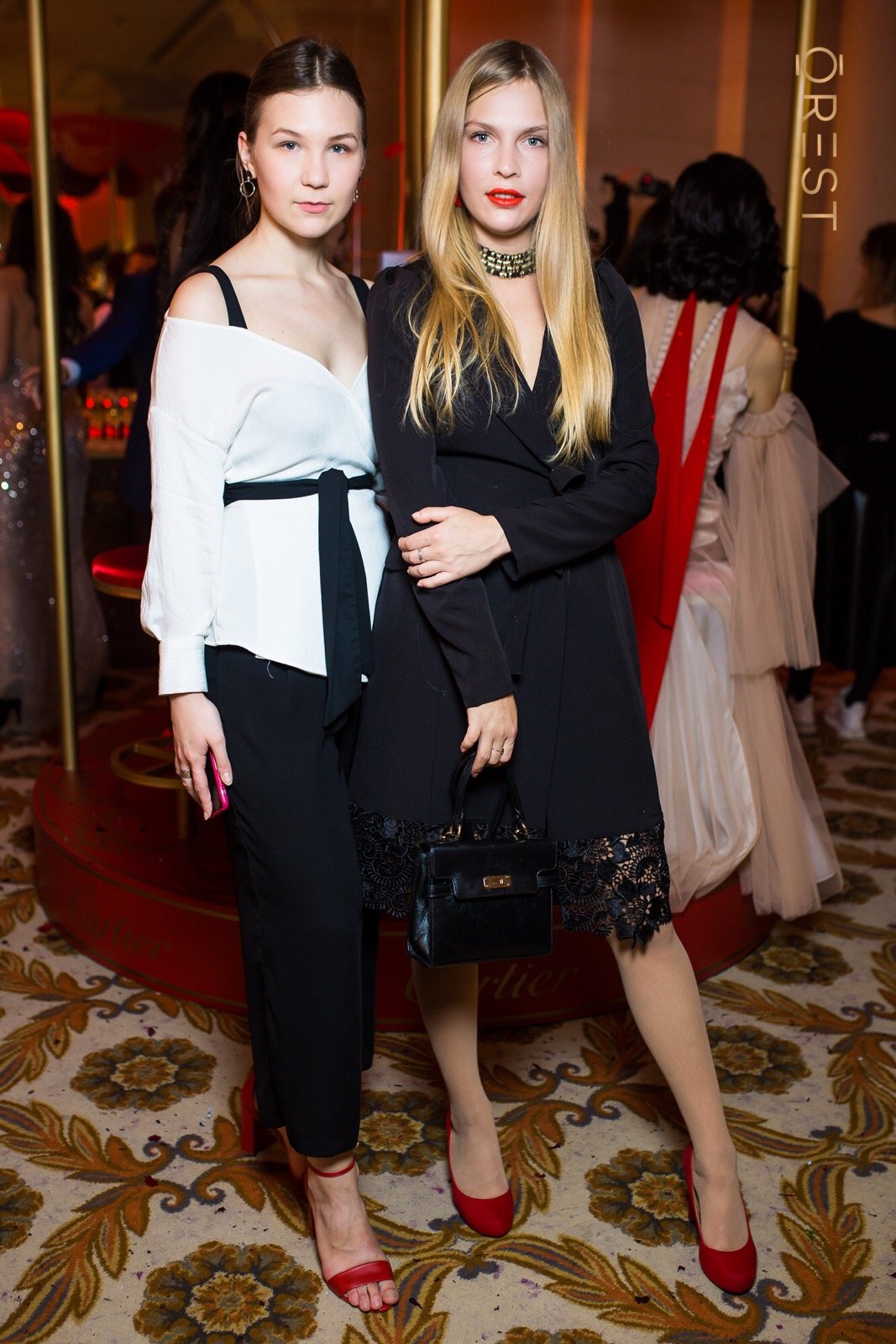THIS INSIDE UKRAINian Heart STORY IS FROM London, United Kingdom.
* All images and answers in the feature were provided by the WOW Woman, unless otherwise specified.
It is a gift to discover an authentic human who is calmly serving factual information into the cacophony of online noise. The human I’m talking about is the Ukrainian Ms. Sophie Shuliakovska who, with a soothing voice and in a captivating manner, shares amusing and erudite tidbits about Ukrainian culture, history, cuisine, stories of the renowned Ukrainian philosophers, artists and much more. Ms. Shuliakovska records her videos in English and releases them into the ether, unvexed by the number of views; what matters is that she tries. As a Ukrainian, I applaud Sophie’s efforts to highlight my homeland and as a creator, I appreciate the thought that goes into editing and filming. I also admire Sophie for putting herself out there, talking to the camera, emoting and showing the world her true self; the last part I don’t take lightly because the russian troll army and those affected by the propaganda are vicious and come out in droves. Through all the negative comments, skepticism and whataboutisms, Sophie persists, because she is brave, because information is power, because freedom to speak the truth is more powerful than russian threats and because she is Ukrainian. I am very proud of Sophie and her efforts!
Following the full-scale russian invasion, I am pleased to see Ukrainian creators, activists and foreign supporters unite and cross-collaborate on all platforms as one allied force against the russian aggressor. It’s inspiring to be part of such global effort. Although our niches and areas of focus vary, and we may not understand each other’s tactics, we give respect where it’s due - each other’s concerted effort to show the world our Ukrainian humanity, fundraise and work hard to defeat our enemy and ensure that Ukraine perseveres!
Below, are some of my favourites among Sophie’s videos to give a flavour of the diverse topics she choses to highlight. I also included the original video that drew me to Sophie’s efforts, a short Tik Tok in which she points out that the American conductor Leonard Bernstein, depicted by Bradley Cooper in the Oscar-nominated film Maestro, is of Ukrainian and not russian descent; Mr. Bernstein’s parents are both from Ukraine’s region called Rivne. For anyone who is proud of their heritage, such distinctions are touching, and pride-evoking.
- Olga Shmaidenko, Founder of WOW Woman.
A few examples of Sophie’s presence online. This is inspiring for me, and I’m sure for many Ukrainians abroad, to carry out their own initiatives in support of Ukraine. I applaud this effort.
Communications Specialist, Disseminator of Truth, Ukrainian in Europe
1. Name.
Sophie Shuliakovska.
2. Where were you born and where do you live now?
I was born in small village called Kolky in the Volyn Region of Ukraine. I moved to Kyiv when I was 17 to study and lived there up until February 2022. Now I live in London, UK.
Read more about Volyn Region here.
3. What did you study and what is your profession?
I studied PR and Advertising at the Kyiv National University of Culture and Arts. I’m working as a PR and Communications specialist right now.
4. What was your typical day like before the war, what happened on that day and how has your life changed since the russian invasion of Ukraine?
I never had a typical day before the full-scale war; I worked in PR, I was involved in so many different things, worked on photoshoots, attended launch events, wrote press releases and more. I loved the process of creating and brainstorming for new campaigns. At the moment, I’m in London, UK. I still work in communications, but now I’m working for a corporate digital PR agency. I have a hybrid working schedule, so some days I come to the office and some days I work from home. During first few months of war my morning started without any routines, just like for everyone in Ukraine – reading the news. Slowly I got back to my small rituals and now they help prepare me for the day ahead, and allow me to take care of my mental health.
On the 24th of February 2022, the day russia invaded in a full-scale attack, I woke up from the the sounds of my neighbor’s knocking on my front door and saying “it has started”. I then grabbed my small suitcase, packed it and went to our Kyiv office, where entire team met. At lunch we parted ways and I went to my friend’s apartment; together we decided that the following day we’ll go to Western Ukraine (where I am from). We couldn’t leave on the 24th because traffic jams out of Kyiv were enormous and most roads were blocked. I spent two months in Volyn, in my home town. While there I hosted families from the hardest hit cities like Kharkiv. They lived with us for a while. There was so much job uncertainty at the time that I decided I needed to take matters into my own hands and do my best to be able to support my family and myself. I decided to flee to London, a place I’ve never been to before. I am still here now, and I honestly I am very happy I decided to do it. Being here expanded my horizons so broadly and allowed me to gain new perspectives and amazing international experiences.
Sophie’s world. Ukraine. Kyiv. before the full-scale russian invasion.
EUROPE Protests. The best city in the world. Kyiv. 2023. Christmas.
5. What are your strengths and superpowers?
Even in the darkest of times I seem to be able to find a light in the darkness and hold a positive perspective. I also love to share interesting stories and engage with people, that’s why I think I was drawn to my profession. I love communications so much.
6. What are some concrete actions (big or small) you’ve done and continue doing to help Ukraine and Ukrainian people?
First the first few months of war I was conducting lots of interviews for international press (Vogue Spain, GQ Italy, The Cut) for FROLOV brand. We had this amazing opportunity to show the international audiences our perspective and describe how we were coping with the war, how we were feeling, what we were going through and how the world could support us.
Last year, my friend Yuri Noha and I became mentors at the Ukrainian education platform Projector Foundation, where people can buy our PR consultations in exchange for a donation for the needs of Ukrainian army. Projector’s aim is to provide women with education to start careers in the creative and tech fields.
Several months ago I decided to create a TikTok series that will show some interesting facts about Ukraine, our culture and our people. There is so much bad news we all face every day, and I really felt like it would be a great time to use this attention world has around Ukraine to show things we’re proud of, things from our history, fun facts and stories that international audiences will find interesting and will remember.
I believe it is very important for everyone to use their individual platform and voice to try and do something in order to promote our country and therefore get more allies on our side. I don’t want the world to forget about Ukraine, and instead keep in mind how strong, courageous and creative Ukrainians are.
7. What are things you do just for you? Is it possible to stay sane in a war situation? What are some things that help you to not lose yourself?
One thing which hasn’t changed for years now is my morning routine - every morning after waking up, I stay away from my phone for at least an hour (which helps my mental health so much) and I do freewriting, a technique of just writing with a pen in my notebook any and all thoughts, non-stop for 15 mins. It is a stream of live consciousness, it’s not a diary and I never read it again. It’s designed to materialize your intrusive thoughts on paper and get rid of them, it helps me so much to start my day properly and gives me a quality time alone with acknowledging my thoughts and not running away from them.
What helps me stay sane is physical work, my regular workouts and yoga. Exercise helps me release tension and stay physically and mentally strong.
I also heavily rely on friends and family. Without our constant conversations, I wouldn’t be able to keep up.
Read about the various things Ukrainians are fighting for. Sophie is in beautiful Lviv, the Western region of the country.
8. Do you feel the war changed you? How? Since the start of the war, has anything surprised you about yourself (how you have handled yourself, remained strong, found inspiration in unlikely sources, etc.), about your country, about your ideas about humanity? What have been some of your epiphanies?
The war made me see humanity in two extremes, the worst and the best. We all know what this “worst” has been from the news of the atrocities perpetrated by our attacker, so I don’t have to explain here further. But the “best” has been various kinds of support we didn’t even think we’ll receive from the worldwide community. Both foreigners and Ukrainians hosting other Ukrainian people, donating, taking part in charity initiatives and using their personal platforms to fundraise and post kind and supportive messages. So many amazing people united to help and that was the best thing ever. Because of this, I still have a faith in humanity and I know that light will win over darkness. I believe in amazing human beings in this world who are on our side, on the side of truth and bravery.
At the start of the full-scale russian invasion I was super overwhelmed and thought I would never be able to listen to music again. But that feeling soon passed and so much good music helped me get through some incredibly tough periods of my life that came later on. I’m so thankful to these artists whose tracks were and still are a part of my playlist.
9. What do you want the world to know about Ukrainians in this moment in time?
I think the world has seen our courage and strength from our brave resistance for the past two years of the full scale war. I also want everyone to realize and acknowledge how precious our culture is and how many valuable for the world things we created. This is what I’m trying to do with my TikTok account.
10. Who are your WOW Women who inspire you?
I find inspiration in every single Ukrainian woman right now. I genuinely find something in each of us I can admire, be it someone’s kindness, someone’s ability to convey the right messages to the world, someone’s courage to start a new life with a kid abroad and still support their families back home, someone’s requalification of skills for a new career, someone’s ability to create a donation initiative that surpasses millions of hryvnas, someone’s who started a new business with an idea, all despite constant air raid alarms. This list can go on forever!
11. What is a place or activity that makes you feel happiest?
Talking to my loved ones, wherever I am. They always make me feel like home.
12. You record your educational videos about Ukraine in English. How did you become fluent? Your vocabulary is impressive!
I studied English at school, where during last three years of studying I had the privilege of having a Peace Corps Volunteer from the United States as our teacher. He was incredibly engaging and studying the language seemed more like a fun game, rather than a monotonous learning experience. After that, I practiced my English skills by watching English-speaking TV-shows, listening to music and travelling. My work for a Ukrainian fashion brand in Kyiv required English-speaking at all times. Learning English was a process that started for me when I was a kid and continues to this day.
13. Did you ever feel the difference between russians and Ukrainians before russia attacked in a full-scale invasion? What do you say/how do you react to russians in London?
I think that the overall russian vibe has always seemed more doom-like to me, as if it’s the “dramatic tragedy” of their lives; I could never relate to that mentality. But at the same time, I always believed in the best outcome, and as such I never in my worst nightmares imagined current atrocities perpetrated by the russians.
Sometimes I do hear russian language around me, but I personally just leave them alone, to be honest. I do think it is important to distinguish us and not collaborate, carry out open talks / discussion panels / shows with them in any way. Yes, hearing the language of the terrorist brings the worst emotions, but I don’t think reacting publicly to it would help somehow. I’m concentrating on what I can personally do to promote our culture, that is my personal focus.
14. What will be the first thing you’ll do when Ukraine wins? What are your dreams for yourself and your family after the war is finished?
I will be very emotional. I think that I’ll only manage to scream and cry when I hear this amazing news. We’ve all been waiting for this news for so long. My dream is to rebuild and invest my time, money, work and energy into an independent, strong and beautiful Ukraine!
15. Where can others find you/your work? (links to website, blog, etc).
TikTok - my new account: @magicsophshu
(previous account: @magicsophishere)
Instagram - @magicsophie
For Ukrainians living abroad
What is it like to live outside the country right now and keep connecting to your family and loved ones inside? Can you please describe to those who just can't relate to this on a personal level?
The main feeling you are constantly battling is a general worry for your family and friends, and the guilt of someone who is living in a safer country. It is tough, but I try to shift focus and concentrate on what benefits I can create for Ukraine by being abroad. I continue to use my voice and professional knowledge to remind everyone that the war in my country is not over, and we do desperately need a continued international support.
You’re living in United Kingdom at the moment. Do you think it helps to be in the country that supports Ukraine? What percentage of your mental load would you say goes toward talking about Ukraine with Brits and those who have forgotten about the war?
It is surely super revealing to feel this level of support from the UK, on a political and also very personal level. The number of flags, stickers, and paintings around London in yellow and blue warms my heart every time I see them. The conversations about Ukraine pop-up very quickly when I talk to locals. I imagine they probably would love to hear that it's all good now, not as dangerous as two years ago and the conflict is close to being finished, etc., but I have to bring the reality check into the convo all the time. Especially after visiting my home and family this past Christmas and having my own experiences inside Ukraine. So I carry on sharing what the overall mood is like in Ukraine and continue talking about the main worries and hopes of the Ukrainian people.
Do you have plans to live in Ukraine again? What do you feel is the right approach to eventually encourage all the people who left the country (~6 Million Ukrainians) to eventually return?
From my personal experience, priority number one when thinking of returning is safety. I think that when victory is ours and it is safe to live and build life in Ukraine, it would be a huge encouragement for people to return. This challenge of course is tremendous, but I see so many prospects in Ukrainian economic development, and I do believe that we can boost the Ukrainian economy by coming back and sharing our gained international knowledge toward rebuilding a stronger and more progressive Ukraine.
How do you see dynamics changing inside the country, with attitudes toward those who left vs those who stayed? Do you think that Ukrainians who left the country have a specific responsibility toward their homeland?
From what I’ve witnessed, people living inside Ukraine try to live their lives despite multiple struggles. Ukrainians continue working and doing their best to support the army in order to bring the victory closer.
Ukrainians living abroad do have a big responsibility to be vocal and visible and remind the world about the war; they also must do their best to help Ukraine from their safe position. I know so many Ukrainians who do just that in their own way, some attend rallies and protest, create big charity campaigns and collect donations, others influence local politicians, continue telling stories and sharing their war experiences, and encourage people to help in any possible way.
What is it like to witness the country from the outside, evolve and grow with incredible difficulties of surviving aggression and atrocities?
It is heartbreaking to witness the terrorist country brutalizing Ukraine, how unfair and cruel it is! I do my best to stay in touch with my friends and of course, carry out daily talks with my family. I think our conversations help us all to express and vent our frustrations, fears, anger. Talking through it helps to clear the mind and come up with small plans - about what we can do to help, no matter where we are. I wish more people would ask themselves these questions. And then act! I truly believe that every small action can potentially make a big difference in the world.


